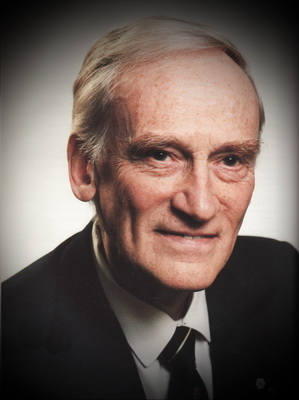Jean-Louis Roux was a distingushed actor who was hounded out office as Quebec’s lieutenant-governor by Quebec nationalists within six months after he admitted he once wore a swastika in his teens while taking part in an anti-conscription demonstration during the Second World War. One of the founders of Montreal’s Theatre du Nouveau Monde and former head of both the National Theatre School and The Canada Council for the Arts, Mr. Roux was also briefly a Canadian senator. “He was a great man of the theatre, an electrifying doyen,” recalled author Jan Martel.
He was 90 when he died after a lengthy illness on Nov. 28. “He’s been part of my life since I was a student at the National Theatre School in the 1960s,” said actress Diana Leblanc, who appeared in the last show Roux directed at Stratford seven years ago, The Measure of Love. “He was highly intelligent, his approach was intellectual. If he seemed to be aloof it was because he was reserved and rather shy.”
 Jean Louis Roux was born in Montreal May 18, 1923. He was educated at College Ste. Marie and like his father, was going to be a doctor. While still in school he began acting with a comedy troupe, Les Compagnons de St. Laurent. Roux enrolled in the Universite de Montreal, but dropped out of med school in 1946 to become an actor. He spent five years working with experimental theatres in Paris before returning to Montreal in 1950. He and eight of his friends, including Jean Gascon, each chipped in $500 to start the Theatre du Nouveau Monde. He wrote Rose LaTulippe, one of the first plays produced by the company and served as the company’s artistic director for 15 years. Mr. Roux became a household name in Quebec when he played in Ovide in the popular television series The Plouffe family. Known for his impeccable diction, he performed almost all of the French and English language classics, including a memorable Lear. He wrote and produced, Bois Brule, a show about Louis Riel and also had a cameo role in Tony Richardson’s film, Hotel New Hampshire.
Jean Louis Roux was born in Montreal May 18, 1923. He was educated at College Ste. Marie and like his father, was going to be a doctor. While still in school he began acting with a comedy troupe, Les Compagnons de St. Laurent. Roux enrolled in the Universite de Montreal, but dropped out of med school in 1946 to become an actor. He spent five years working with experimental theatres in Paris before returning to Montreal in 1950. He and eight of his friends, including Jean Gascon, each chipped in $500 to start the Theatre du Nouveau Monde. He wrote Rose LaTulippe, one of the first plays produced by the company and served as the company’s artistic director for 15 years. Mr. Roux became a household name in Quebec when he played in Ovide in the popular television series The Plouffe family. Known for his impeccable diction, he performed almost all of the French and English language classics, including a memorable Lear. He wrote and produced, Bois Brule, a show about Louis Riel and also had a cameo role in Tony Richardson’s film, Hotel New Hampshire.
An ardent federalist, Mr. Roux was appointed to the Senate in 1994. He campaigned vigorously for the No side in the Quebec sovereignty referendum the following year. He was rewarded for his efforts by being named the province’s lieutenant-governor. He inflamed public opinion in that province by suggesting that he had the right to refuse assent to any legislation that would declare a separate country. . It was only after Mr. Roux spoke of his wartime indiscretions to the French-language newsmagazine L’Actualite that his wearing of the swastika as a teenager became an issue. Denounced by Premier Lucien Bouchard and under attack from the Canadian Jewish Congress, Mr. Roux resigned as lieutenant governor on Nov. 5, 1996 to spare the Crown any embarrassment.
In his autobiography, Nous Sommes tous des actors he explained that what he had done had been a prank which had to understood in the context of its time. “In general, young francophones during the 30s were politically conservative,” he writes, “I was among the many who admired a regieme that was authoritarian, nationalist and catholic. Latent anti-semitism was part and parcel of the education we received and was widespread in the newspapers we read.” He nevertheless accepted the “full gravity” of his actions. His apology made it clear that he had never been a member of any Nazi movement and that facism was never part of his political ideology. That evening of the day he resigned, he was back on stage, acting.
He was named head of the Canada Council of the Arts in 1997 a position he held until he retired in 2003.
He was awarded the Order of Canada in 1971, promoted to Companion in 1987, given the Order of Quebec in 1989 and presented with the Governor-General’s lifetime achievement award in 2004. He leaves his wife of 63 years, the actress Monique Oligny and their son, Gabriel.

























Comments
Please login to post comments.